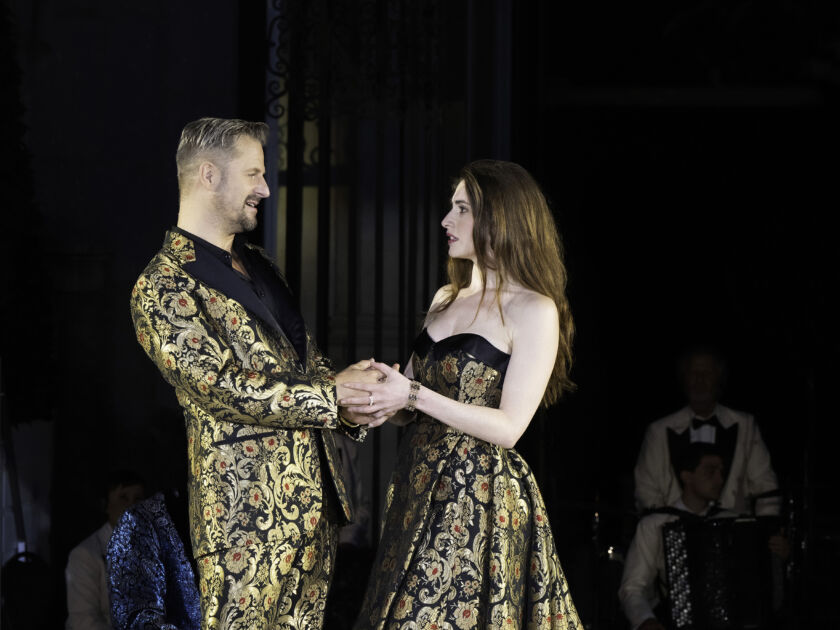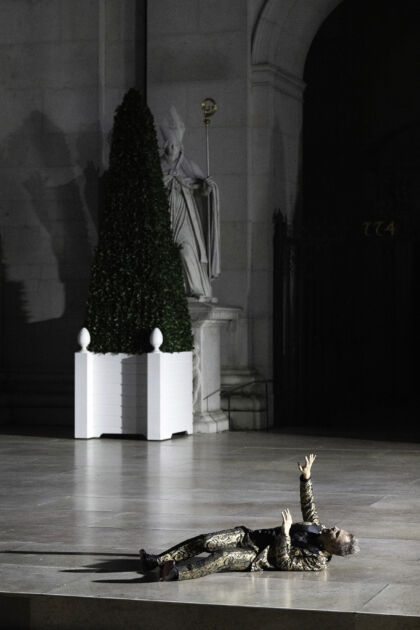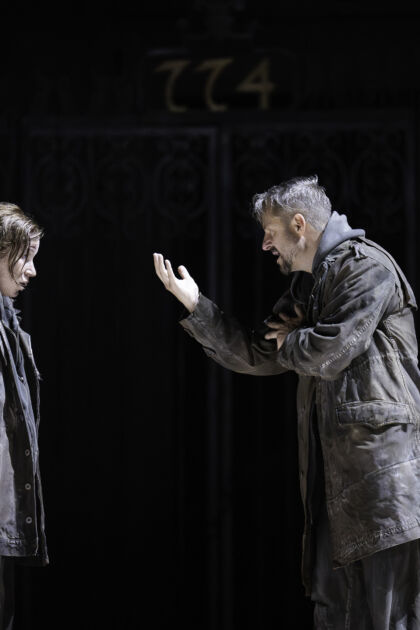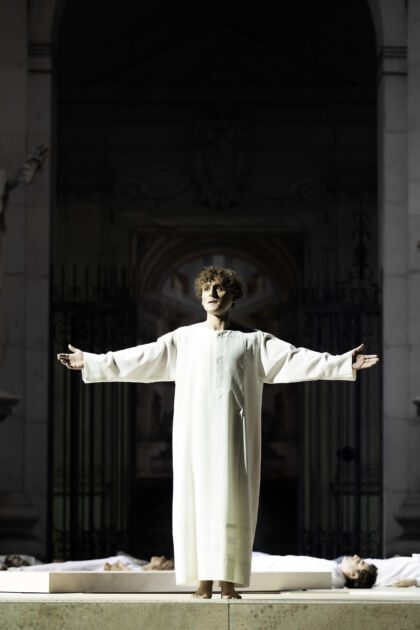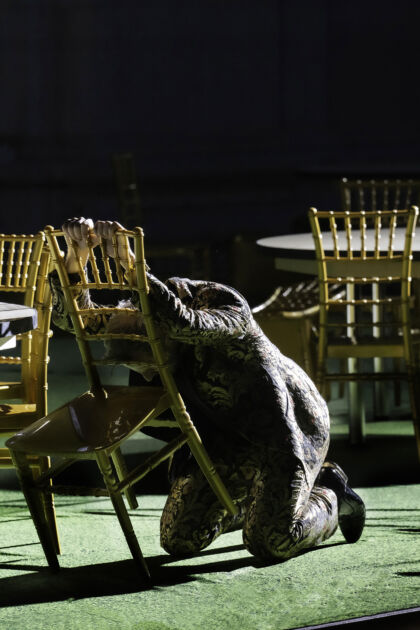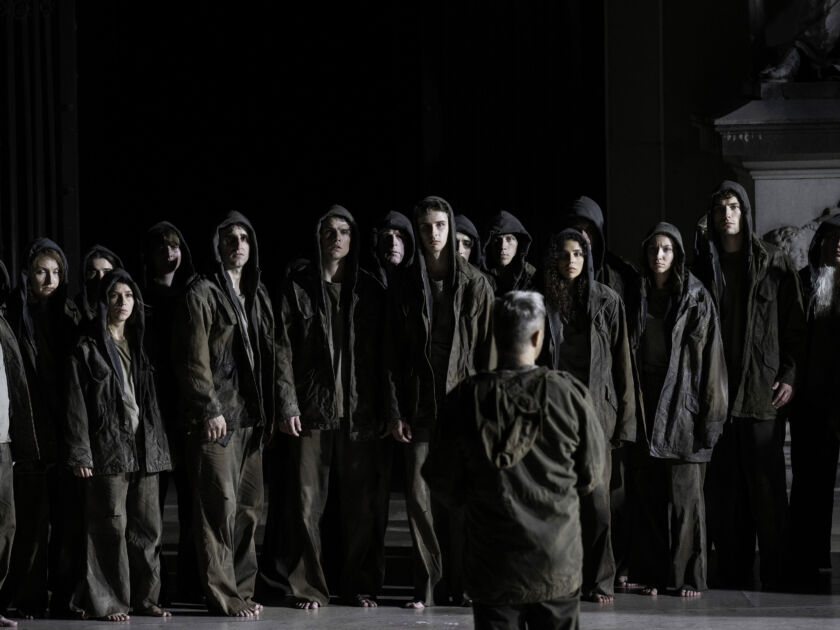Hugo von Hofmannsthal has fascinated me for a long time. I consider him to be the conscious and unconscious master of the Zeitgeist – and I use the Freudian terminology with care – who, even when setting his works in the past, was always connected to social, psychological and political developments in the present.
Jedermann is certainly the most universal and the most culturally popular of his works. The play is based on the 15th-century Dutch and 16th-century English medieval morality plays of the same title, and so forms part of a long tradition. These plays deal with the one great mystery that we will all have to face: death. As human beings, however, it is not in our DNA to really apprehend the fact of our own death. For most of us, death is something that happens to other people. And when death does come, as come it must, it will always be too soon. But why is that so, and, in holding on to life, what exactly is it that we are holding on to so desperately? Jedermann explores all that, and more. Its power and resonance come from the fact that, however codified the telling of the story may be, its subject matter concerns every single audience member, in every performance, every year. There are not many plays for which this can be said.
As in the earlier medieval versions, one finds in this play a mixture of real and allegorical characters, but Hofmannsthal develops them differently. The real characters in Jedermann’s life, such as his best friend, his servants, his neighbour, his mother, his lover, his nephews, etc. are the first to be introduced (after the prologue with God and Death), and Jedermann’s exchanges with them give us a clear picture of his daily life. His obsession with money and the thoughtless sensory pleasure he constantly seeks are developed further at the party he throws, which, since Hofmannsthal subtitles his version of the play ‘The Death of a Rich Man’, is clearly just one of a great number of similar parties. This is paradoxical, since Jedermann by definition is about all men, but not all men are rich. Jedermann behaves as if everything is his by right, so was he born rich or is he a self-made man – and does it make any difference?
One of the most important developments that Hofmannsthal brought to the story is the fact that Jedermann begins to think about the possibility that something other than wealth and immediate sensory pleasure might be of importance before Death appears to him. Just after, or perhaps because of, the conversation he has with his mother, a crack appears in Jedermann’s psyche that causes him to question how he leads his life. And so, a search for the value and meaning of life begins, as Jedermann questions himself further about the meaning of Death, Good Deeds, Faith and, ultimately, God. In a certain sense, I think one can say that the exchanges Jedermann has with the allegorical characters are not dissimilar to the internal dialogues each of us has every day with ourselves.
In his Jedermann, Hofmannsthal, greatly encouraged by Max Reinhardt, deals with the fundamental question of death, and the question of how – if at all – we can equip ourselves for it. Religious preparation for men and women of any faith can be essential, but I think Hofmannsthal also valued very strongly the relationship that art has to death. He developed the theme time and again in his work, broadening the way death defines our lives to include a constant questioning of the concept of time. Investigating time became art in Hofmannsthal’s hands, and, in a way, Jedermann’s place in the Salzburg Festival over time seems to have become a confirmation of the importance that all art and all the arts can have in our life. Art, which civilization after civilization shows us is the only thing that remains, can help us deal with, perhaps even cope with, the transitory nature of life and the finality of death. This is perhaps one of the reasons why Jedermann has become almost symbolic of the Salzburg Festival.
Max Reinhardt’s idea that the play should be performed in the heart of the city, in front of Salzburg Cathedral, is an idea full of resonance, but also full of joy. We must not lose sight of the fact that although the play concerns the sacred, it is not sacred in itself, and I do not think either Hofmannsthal or Reinhardt wanted it to be approached as such. It is a celebration of life through an acceptance of death, like a christening and a funeral rolled into one. It is in itself a precis, a metaphor and an allegory of life.
Robert Carsen

